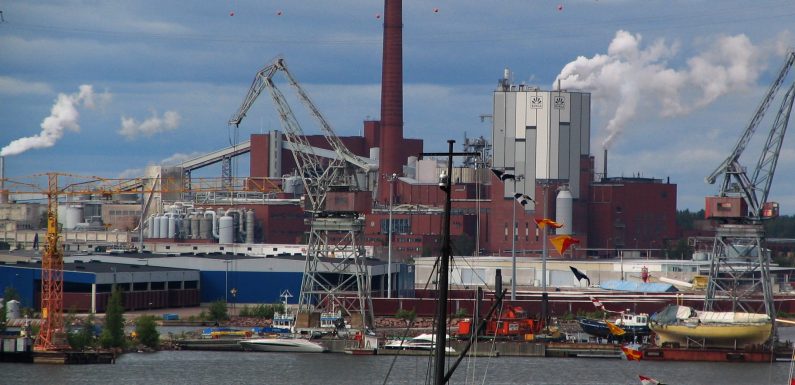
Advancements in machinery and technology have afforded entities such as pulp and paper manufacturers the ability to streamline processes and produce quality products in mass quantities to meet the growing demands of their customers. As great as these modern conveniences are, however, equipment malfunctions and break down resulting in slowed production and downtime. Having a preventative maintenance process in place is, therefore, imperative to reduce profit loss.
Keep Dust At Bay
Pulp, paper, and paperboard warehouses produce a large amount of dust. The concentration of dust in the work environment not only causes respiratory problems for your employees, but it can damage equipment and increase the risk of a fire. Keeping the air and equipment dust-free reduces these risks.
Manufacturers should implement a cleaning process that goes beyond sweeping and dusting. Industrial vacuums, for example, can be used to free dust and debris from mechanical parts of machinery and equipment. Investing in dust control and exhaust systems is also highly recommended.
Keep a Maintenance Schedule
When machines and equipment are used on a daily basis for hours each day, eventually, it’s going to need some maintenance. Keeping up with the maintenance schedule helps to keep equipment running efficiently and reduces the need to repair or replace items.
Most machines have a recommended maintenance schedule that operators should follow. Unfortunately, some pulp and paper manufacturers don’t pay attention to the upkeep of their machines until something goes wrong. As you know, this can slow or stop production altogether causing businesses to lose hundreds, if not thousands of dollars in profit.
Technologies such as scanners, asset management software, and asset labels make it easy to stay on top of necessary equipment and machinery maintenance. When scanned, asset labels can provide you with up-to-date information on the device, its maintenance schedule, the last time it was serviced, and even what was done.
Inspect Regularly
All equipment, machines, and devices used in the pulp and paper manufacturing process should be inspected regularly. Administrative staff should regularly inspect every item to check for wear and tear or other problems that need to be addressed. Expert servicemen should be hired to inspect equipment on a bi-annual or annual basis for a more detailed and in-depth check that all systems are working as they should. This allows you to catch problems before they get out of hand or cause production downtime.
Effective Employee Training
Human error is another reason that machinery and equipment break down. Paper mills can reduce the likelihood of this happening by ensuring that their staff has the proper training. Employees should be properly trained on how to operate devices, equipment, and machinery accurately. Not only should training include e-learning options, manuals, guides, and tests, but it should include hands-on training where employees actually get to work with the machines under supervision. Educating staff on basic troubleshooting concepts can also streamline processes and boost productivity.
Training should be done during the onboarding process as well as any time new software, tech devices, machines, or equipment are purchased. The training can be conducted by managerial staff or you can ask the companies who sold you the machinery, equipment, or tech device, to send a representative to your organization to provide more detailed training.
Hire Professional Technicians
Though minimizing costs is essential for pulp, paper, and paperboard manufacturers, allowing someone who is inexperienced to operate on your machines and equipment could prove costly. Advanced machines and other technologies used in your plant are complex in nature and, therefore, require extensive education and training to maintain. It is often best to outsource any maintenance and repair tasks to the original manufacturer or an agency that has experience in servicing the make and model of equipment your mill possesses. Many agencies offer warranties along with service contracts for regular checkups, inspections, and maintenance to keep your operations going.
Technological devices, equipment, and machinery are an intricate part of the paper production process. Should these things start to malfunction or break down altogether, production must stop and your business starts bleeding money. Though some things are beyond your control, you can reduce the chances of having to halt operations by taking preventative measures such as those described above.
